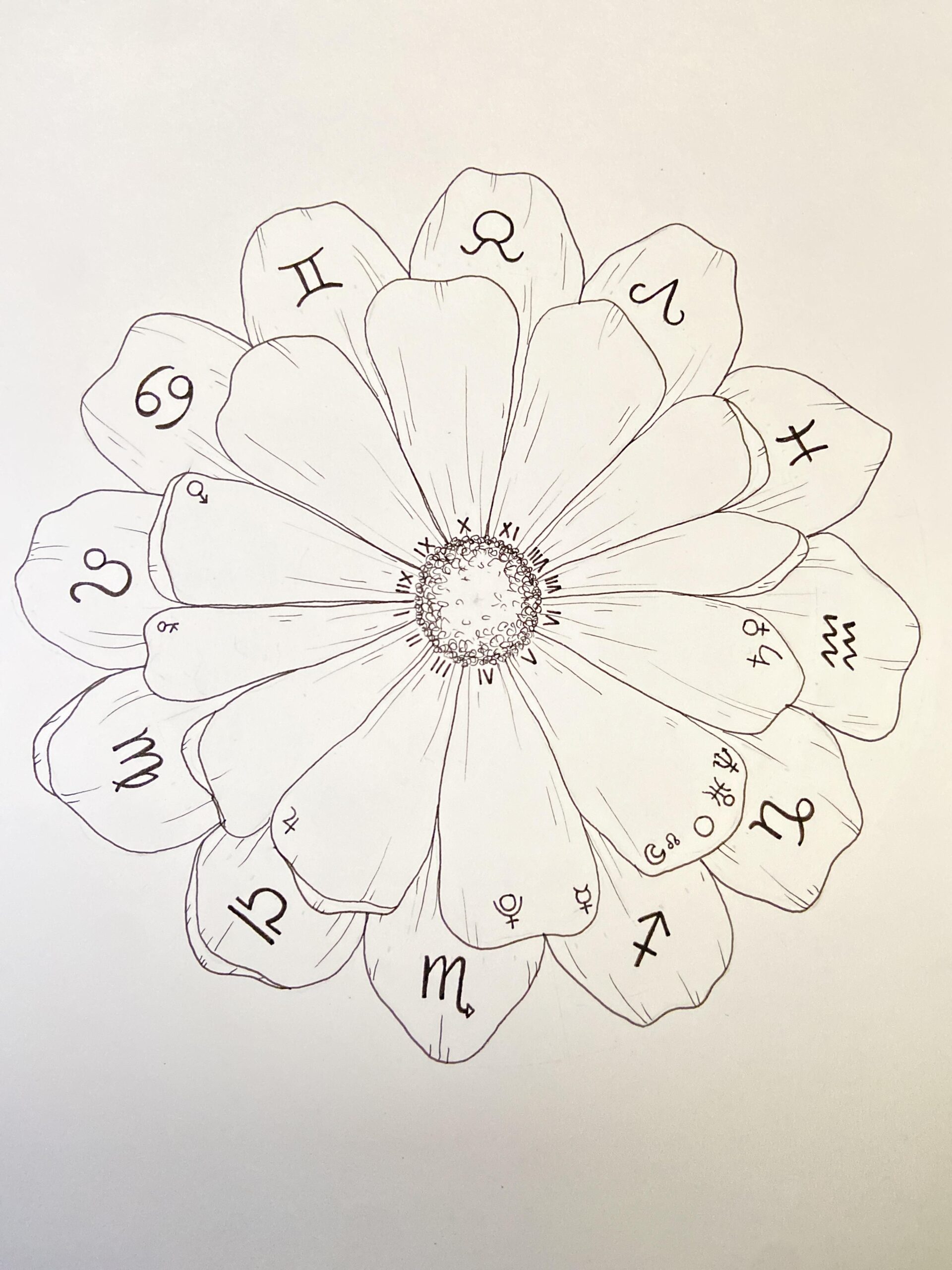
Swimming Against the Current: Overcoming Criticism as a Water Sign
 Water signs (Cancer, Scorpio, and Pisces) often have a deep well of intellectual curiosity, but they can also be sensitive to how their ideas are received. Feedback can be perceived as a personal attack, leading them to be guarded or defensive. Nonetheless, this sensitivity is not a weakness; it allows them to pick up on subtle nuances and emotional undercurrents that others might miss. Their intuition delves into the hidden depths of human experience, plumbing the emotional layers that lie beneath the surface. This keen perception fuels a rich inner world, brimming with empathy and a deep understanding of the human condition. Water signs possess the ability to tap into the subconscious, revealing insights and truths that may elude others. However, their heightened feelings can also make them vulnerable to criticism or negativity, leading them to retreat into their emotional wellspring. This reaction can sometimes be a source of frustration, but it’s also what allows them to connect with others on such a profound level.
Water signs (Cancer, Scorpio, and Pisces) often have a deep well of intellectual curiosity, but they can also be sensitive to how their ideas are received. Feedback can be perceived as a personal attack, leading them to be guarded or defensive. Nonetheless, this sensitivity is not a weakness; it allows them to pick up on subtle nuances and emotional undercurrents that others might miss. Their intuition delves into the hidden depths of human experience, plumbing the emotional layers that lie beneath the surface. This keen perception fuels a rich inner world, brimming with empathy and a deep understanding of the human condition. Water signs possess the ability to tap into the subconscious, revealing insights and truths that may elude others. However, their heightened feelings can also make them vulnerable to criticism or negativity, leading them to retreat into their emotional wellspring. This reaction can sometimes be a source of frustration, but it’s also what allows them to connect with others on such a profound level.
They excel in psychology and understand emotions deeply, enabling them to grasp the myriad subtleties of human feelings effortlessly. They possess a notable talent for accessing hard-to-reach and often hidden knowledge, offering perspectives that can be illuminating and transformative. However, within the framework of psychological typing, water finds its counterpoint in the air element. While they may not occupy opposite positions in the natal chart, on a psychological level, they stand in stark contrast.
Where air reigns over the intellectual sphere, water gravitates towards the emotional and intuitive realms. This misalignment can engender a sense of vulnerability and sensitivity in water signs when confronted with intellectual criticism or analysis. Critiques may trigger exaggerated emotional responses, veering towards hysteria or drama, disproportionate to the situation at hand.
The sensitivity of the water signs isn’t seen as weak, they simply have a greater connection to the depth of their emotional landscape. Far from being divorced from the realm of feelings, the intellect can be greatly enriched by them. When thoughts, analysis, and emotional currents flow together, they create a powerful wellspring for communication, writing, and evaluation, especially in fields that value these qualities.
The brightness and intelligence of water signs, as noted by astrologers like Liz Greene, highlight their intellectual acumen. However, despite these mental strengths, they may encounter challenges when confronted with assessments, particularly concerning their learning abilities. Unlike air signs, whose rationality and detachment enable them to approach an analysis objectively, water signs often find it challenging to detach their personal feelings from intellectual evaluations.
When subjected to criticism, water signs may internalize it deeply, taking it as a personal affront rather than a detached assessment of ideas or concepts. This tendency to intertwine their emotions with their work makes them vulnerable to feeling hurt or wounded by critiques, even when delivered constructively. Their “touchy feelings” in this regard can sometimes overshadow their mental acumen, as they become preoccupied with the emotional impact of feedback rather than solely focusing on how something can be improved and its merits.
This depth of feeling stems from their deep emotional connection to their thoughts and ideas. For water signs, thinking is not an abstract concept but a chance to reflect of their innermost feelings and beliefs. As such, criticism can feel like an attack on their very identity, triggering a defensive response that may seem disproportionate to outsiders.
Von Franz Hillman discuss a case of this in Jung’s psychological types, emphasizing that the inferior function or opposite type of water is air:
Another typical aspect of the inferior function, which is also connected with its unadaptedness and primitiveness, is its touchiness. Most people, when their inferior function is touched upon, become terribly childish— they can’t stand the slightest criticism and always feel attacked. If you want to say something about another person’s inferior function, it is like walking on eggs; people cannot stand any criticism there. One must wait for the right moment, for a peaceful atmosphere, and then carefully, with a long introductory speech, one might get across some slight criticism about the inferior function. But simply to shoot criticism at people will only get them absolutely bewildered. I learned this for the first time with amazement many years ago when I was still studying. She was the feeling (water) type. The paper was very good, but in a minor passage where she switched from one theme to another, it seemed to me that there was a hiatus of thought. What she said was quite right, but between the two passages, for the thinking type (air), the logical transition was lacking. So I said to her that I thought it was an excellent paper but that on one page she might make a better transition. At that point, she got absolutely emotional and said: “Oh well, then it’s all ruined, I shall just burn it,” and she grabbed it out of my hand saying: “I know it’s junk, I shall burn it up!” I pulled it from her: “For God’s sake, don’t burn it up!” “Oh well,” she said, “I knew you thought it would be junk,” and in this vein went on and on. When the storm was over, I was able to get in a word and said: “You need not even retype it; you only need to write in one little sentence to make this transition— just one sentence between these two paragraphs.” The storm started all over again, and I gave up!… It wasn’t even criticism, but just the idea that it could be improved a little bit. That is an extreme case of what happens with the inferior function….Sensitive people are just tyrannical people— everybody else has to adapt to them instead of them trying to adapt to others. But people who are well adapted still generally have a kind of childish, touchy spot where one cannot talk to them reasonably.
The sensitivity experienced by water signs isn’t rooted in ego but in their innate disposition towards introspection and subjectivity. Their muted, inward nature often makes it challenging to articulate their deep insights and imaginative thoughts to the external world. Despite their strong emotional investment in their work and their willingness to share their discoveries, they may encounter difficulties in objective settings where their subjective experiences are not readily understood or appreciated.
For water signs, the airy realm of intellect and objectivity can pose a significant challenge. Feeling inferior in comparison to the more articulate and rational air signs, they may internalize criticism deeply, interpreting it as a reflection of their perceived inadequacies. This sensitivity and touchiness around intellectual matters stem from a deep-seated sense of vulnerability, as water signs struggle with reconciling their subjective experiences with the demands of the objective world. Moreover, their propensity to internalize emotions can magnify these feelings of inferiority, exacerbating their sensitivity to criticism and intellectual challenges.
I can relate to this as someone with a watery influence (having planets in water signs). We can be incredibly invested in our work and love to share our discoveries, feelings, and perspectives. However, the objective world can be trickier. Many times, I have overreacted to the slightest comment in my personal life, and drama ensues for a while. Then, the waters go calm again, and rationality does come, just not when I want it to.
For individuals strongly influenced by water signs, feelings often take precedence over reason. This emphasis on emotion can lead to moments of apparent irrationality, as decisions and conclusions are guided primarily by intuitive hunches and emotional responses rather than cold logic. Water signs possess a keen sensitivity to the subtle nuances of human experience, allowing them to intuitively grasp the essence of a situation or problem. Rather than relying only on analytical reasoning, they rely on their gut instincts and emotional intelligence. While this approach may not always align with conventional standards of rationality, it offers an understanding of life that encompasses the emotional, spiritual, and intuitive dimensions of existence.
Yet, this reliance on feelings can also pose challenges for water signs. They may struggle with uncertainty or feelings of inadequacy when confronted with situations that demand a more detached and rational approach. In these moments, they may feel a sense of unease or frustration at not having the same ease with logical reasoning as other signs.
While it may not always please everyone, for water signs, operating from a place of emotional authenticity is paramount, guiding them towards a deeper understanding of themselves and the world around them.
Does any of this strike a chord with you? Have you ever experienced intense or emotional reactions to someone critiquing your work or any other aspect of your life? These moments can sting, becoming sore spots that linger. By recognizing this tendency, you can begin to build a thicker skin. This doesn’t mean becoming emotionless, but you can develop the ability to let comments bounce off you without taking them as a personal attack. It’s learning to separate constructive criticism from negativity and using the former to grow, while letting the latter roll off your back. It’s okay to admit there have been moments where something someone said sent you spiraling, only to realize later it wasn’t such a big deal.



















 Venus-Pluto Synastry: A Love So Powerful That It Might Just Kill Them
Venus-Pluto Synastry: A Love So Powerful That It Might Just Kill Them
 Venus-Pluto Aspects: Ruin Me
Venus-Pluto Aspects: Ruin Me
 The Difference: Progressions Vs Transits
The Difference: Progressions Vs Transits
 Moon Conjunct Pluto Synastry
Moon Conjunct Pluto Synastry
 The Twin Journeys of Saturn’s Returns
The Twin Journeys of Saturn’s Returns
 Sun Square Pluto Synastry: You’ve Got That Power Over Me
Sun Square Pluto Synastry: You’ve Got That Power Over Me
 Venus Trine Pluto: Dark Desires
Venus Trine Pluto: Dark Desires
 Mars Square Pluto Natal Aspect: The Unbreakable Spirit
Mars Square Pluto Natal Aspect: The Unbreakable Spirit
 Mars-Pluto Synastry: Something Quite Dark and Dangerous
Mars-Pluto Synastry: Something Quite Dark and Dangerous
 Mars in Aquarius: Sex drive
Mars in Aquarius: Sex drive
 Uranus Transits the 6th House
Uranus Transits the 6th House
 Emotional Understanding: Moon Trine Synastry Aspects Interpreted
Emotional Understanding: Moon Trine Synastry Aspects Interpreted
 The Cost of Living Through the Eyes of Aries to Virgo
The Cost of Living Through the Eyes of Aries to Virgo
 Sun Opposite Pluto Natal Aspect
Sun Opposite Pluto Natal Aspect
 Venus Trine Mars Synastry
Venus Trine Mars Synastry
 Pluto in the 8th House: Secrets of the Soul
Pluto in the 8th House: Secrets of the Soul
 Uranus Transits 8th the House: Rebirth from Chaos
Uranus Transits 8th the House: Rebirth from Chaos
 Transiting Pluto Aspect Natal Mars: Are You Mad as Hell
Transiting Pluto Aspect Natal Mars: Are You Mad as Hell
 Reflections on a Past Venus-Pluto Synastry Aspect
Reflections on a Past Venus-Pluto Synastry Aspect
 Venus Conjunct Neptune Synastry: Euphoria and the Aftermath
Venus Conjunct Neptune Synastry: Euphoria and the Aftermath